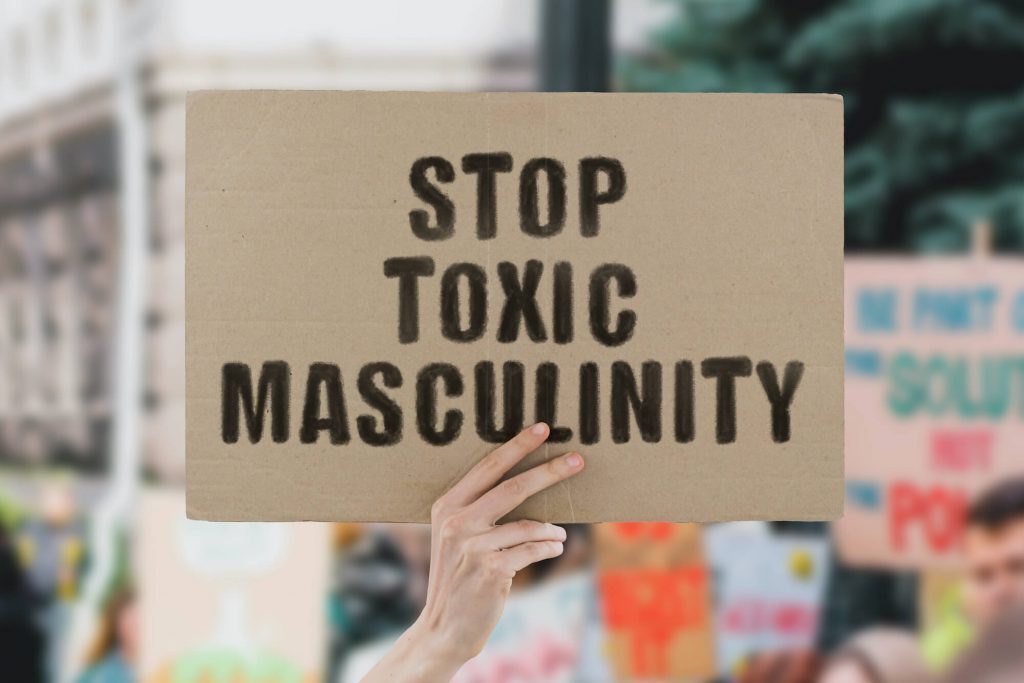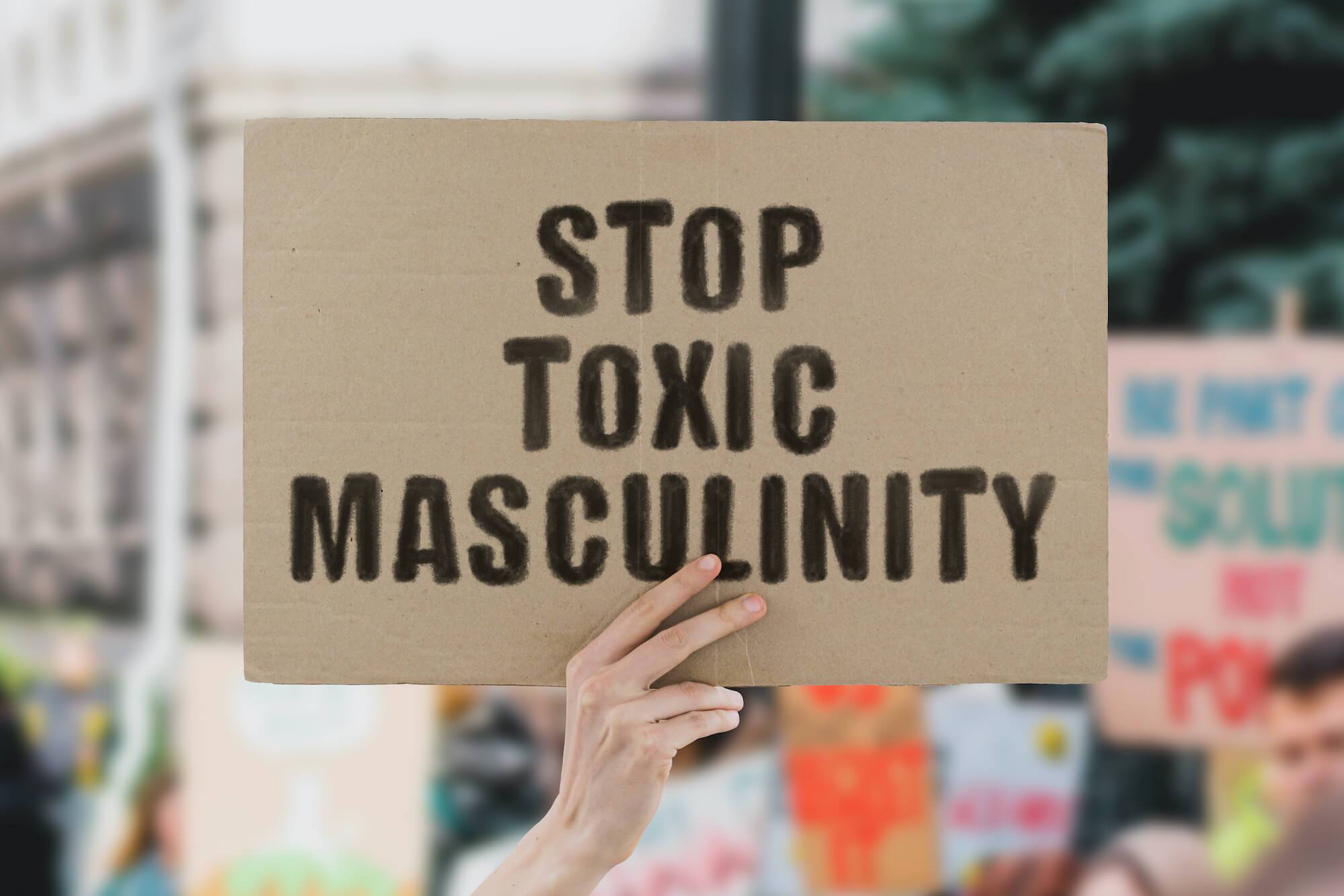life
The Rise of Anti-Fragility & What Men Can Do to Fix It
Lately, fragility has been a frequent topic of discussion, particularly as it pertains to race. What does it all mean and how does it pertain to a larger conversation about masculinity, toxicity, and accountability? And why is anti-fragility on the rise?
Table of Contents
Male Privilege + Fragility = A Concept to Explore
The term white fragility was coined by American educator and academic Robin DiAngelo in 2011. She defined it as “the discomfort and defensiveness on the part of a white person when confronted by information about racial inequality and injustice.”
Over time, this experience of fragility has expanded past the boundaries of whiteness, and discomfort and defensiveness have extended to other identities with other forms of privilege. It’s worth talking here about how fragility has been experienced by men and what we can do to change it.
Fragility is not a simple concept. It’s an intricate and intersectional dialogue. And one of the places it lands is an observed tension displayed by some men within discussions of gender inequality where it takes the form of the discomfort and defensiveness DiAngelo described when defining white fragility. We see it also in conversations around sexuality, mental health, class, and race. What specifically provokes these queasy sensations? Usually, it results from references to personal accountability. For men, of course, this accountability is for inherent male privilege.
The Many Layers of Fragility
Any discussion of fragility is not simple. It’s a rabbit hole of intersectionality. It is multi-layered and complex – this is in part due to the insidious nature (and passive acceptance of) privilege and entitlement in toxic male culture. Acknowledging this privilege can definitely lead to a feeling of fragility, which can then invoke defensiveness. Perhaps surprisingly, this process is not limited to those who identify as male. Women, too, can participate in enabling male toxicity, and the reasons for that phenomenon are themselves remarkably complex, intersectional, and multi-layered.
Here’s a goal: what if we develop new standards so that we could find a space of anti-fragility in which men can aside discomfort in favor of listening, learning, and unlearning? Much of the undoing of male toxicity could start here. So let’s imagine a guidebook of sorts:
The first step on the path to creating an anti-fragility mindset is accountability. And taking responsibility for your societal role as male may provoke some pretty undesirable feelings. Unfortunately, if you identify as a man you are, by default, aligned with a long history of oppression. It sucks. You probably didn’t personally intend to oppress but the reality is that your very status as male places you in a position of privilege. Part of the problem is that you must be hyper-aware of your privilege to carry that understanding through all of your movements, in every facet of your life. If you can’t reach that point, that means you’re continuing to be part of the problem – that problem being the systemic oppression of women.
This conversation may already be making you uncomfortable and defensive – and that’s why you need to be here. If you’re bored or think I’m full of shit, then you really need to be here.
The male ego is fragile because it went largely unchallenged for centuries under (still-operating) patriarchal systems of power. A history that long and entrenched means that when the male ego has been challenged, the results have ranged from an impulse to defend the existing system (this might take the form of tense conversation) to abject violence (enacted to keep the system in place). And those who oppose systemic, social, or familial systems of power are vulnerable and sometimes in acute danger.
By proxy, those who oppose strict systems of power are the victims of it. In the context of patriarchal systemic power and gender inequality, I mean, of course, those who identify as women. So now we have a phenomenon where women who are challenging dominance become greater victims of it, and this can come both in the form of rhetorical or physical violence, and in complicity. What I mean by complicity is, some women will participate in enabling the systems that oppress them – and this is a fear response that is itself entrenched, multi-generational, and deeply instinctive. Moreover, this fear (and, as I’ll explain, fawning) becomes an effective further means of control and a tool of oppression.

The male ego is fragile because it went largely unchallenged for centuries under (still-operating) patriarchal systems of power.
Share on facebook
Share on twitter
Share on linkedin
Freeze and Fawn: A Dynamic Duo of Danger Responses
In psychology, the well-known fight or flight response is accompanied by a lesser-known duo: freeze and fawn. The freeze response happens when a victim believes they cannot win by fighting or running from danger. The fawn response is a little more complicated and insidious: it’s invoked when someone believes that appeasing danger might save one from it.
Both instincts are instantaneous, and both are attempts to survive. When I speak of some women who become complicit in a system of systemic oppression, I am speaking of those who use the fawn response. If systemic patriarchy had a personality pathology, it would very much look like the behavior of many women who are victims of domestic abuse with a male oppressor.
There’s a choice to make right now: you can say, individually and probably correctly within the context of your own life, “I do not see myself as an oppressor.” But there’s an alternative. What if you said, “This is making me uncomfortable but maybe it’s because somewhere in me, I can see that I have benefited from this system, even if that wasn’t my intention.” If the second option speaks to you, it’s a good sign – and it means you are already working toward anti-fragility. This is your first and vital step to becoming an ally to women and helping to dismantle oppression.

Yes, Those Feelings of Guilt and Defensiveness Are Normal
You may be feeling guilt – even guilt that seems undeserved. It’s normal. It’s a rough reality to accept that we are all born into this world and socialized with and by people who never challenged their positions of privilege. But now, you have the power to be the first generation of men that completely smashes the patriarchy.
If you’re still feeling defensive and you’re saying to yourself, I am not aligned with an oppressor, it’s okay. There’s still time. Take a moment to think about why you feel this way. Where’s the feeling coming from? Is it loss? If so, it’s worth considering that losing a system that has privileged you can feel like loss. But maybe in preserving it, you’re continuing to uphold a longstanding oppression that has hurt women. Dismantling the system doesn’t drain you of power – it empowers you to be a strong and positive force in creating an equitable system from which you will still benefit.
Listen, if you need more evidence that we’re still living in a male-dominated world, try this exercise: search Google for world leaders, CEOs, heads of state, heads of religious organizations, heads of non-profit organizations, record label executives, police chiefs, military leaders. Now hit ‘images.’ While you’re at it, do a deep dive into statistics about rape and sexual assault, and who are the most common victims. The internet will make my point for me.
The Uncomplication of Consent
Okay, now it gets shittier. There’s a very pressing reason that it’s essential to dismantle male fragility and take accountability. And that’s two words: rape culture.
A primer on consent: it’s not complicated. But it has been continually challenged and debated, from personal conversation to the judicial system. Let’s face it, and you already know this: challenging what a woman means when she says “no”, or “stop”, is beyond absurd. Any need to argue about consent after a woman has said that she was raped or assaulted is beyond nonsensical. If a woman says “no” or “stop,” ceasing all activity is non-negotiable. Context does not matter. Let’s complicate it further – consent is not a one-stop process. It’s ongoing, no matter how you feel about it. That means that at any stage, at any point, no matter what the circumstances, no matter how far along you are, no matter if you’re already in the middle of consensual sex, when a woman says stop, you stop. End. Of. Story. If you don’t, it’s rape.
Where does fragility enter this conversation and what power does anti-fragility hold in the discourse around rape culture? Simply this: you must always think of yourself as a possible threat to a woman. That is incredibly difficult – it ranges from making you feel squeamish to making you question your every moment. But here’s the thing: no matter how you feel about yourself, from a woman’s point of view you carry the potential of harm. This ranges from intimate spaces to walking down the street at night. So, see this as an opportunity to move away from being a source of danger. Sometimes that will mean doing nothing at all. Sometimes it means something more active – crossing the street at night if a woman is walking in front of you. Some more obvious ones: don’t hit on that woman walking down the street. Don’t touch her in a bar. Don’t barrage her with compliments while she’s in an Uber with you. Let me tell you: that shit is not welcome. If it feels welcomed, bear in mind that you may (even accidentally) be inducing the fawn response. To you, that’ll look like she’s being nice – or receptive to advances.
What You Can Do Right Now
Use the discomfort you’re feeling right now! Change the way you move through the world. Let your slightly nauseated sensation lead you to integrate anti-fragility, dismantle toxic male culture and, destroy rape culture.
You might ask, if I need to question my every step, where is the room for genuine sexual engagement? How do I tell whether I’m making the right moves? How can this still turn me (and her) on?
I don’t have all the answers, but I have a couple: the first is ask.
The second: listen. Listen to women. This includes trans women and anybody who identifies as female. Listen to lesbians, listen to black women, listen to women of color. Don’t challenge their experience – even if it makes you feel defensive. Simply put, your discomfort may well be the root of change.
I want to make something really clear, now that you’ve made it this far. Nobody is suggesting that you, personally, are inherently violent because you identify as male. I’m a man. I’m not inherently violent, nor is any man solely based on their gender. It is, however, the very privilege that comes with being male that has led to systemic violence, oppression – and male fragility.
So sit down, fellas. Take a deep breath. You’re at the end of this conversation. Create more. Take any guilt you’re feeling, any defensiveness, and transform it into awareness and allyship. Take accountability for your role and do the one thing that men seem to not want to do the most: change. You have all the tools you need.

